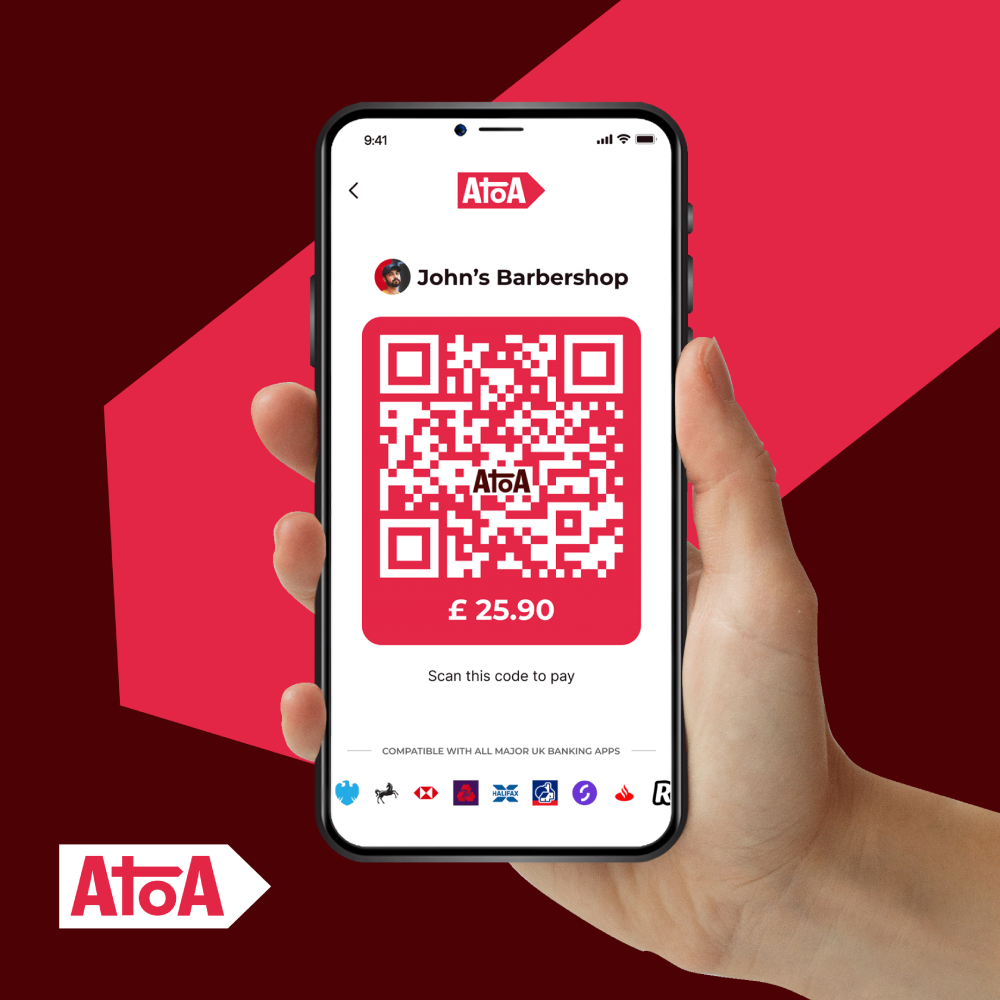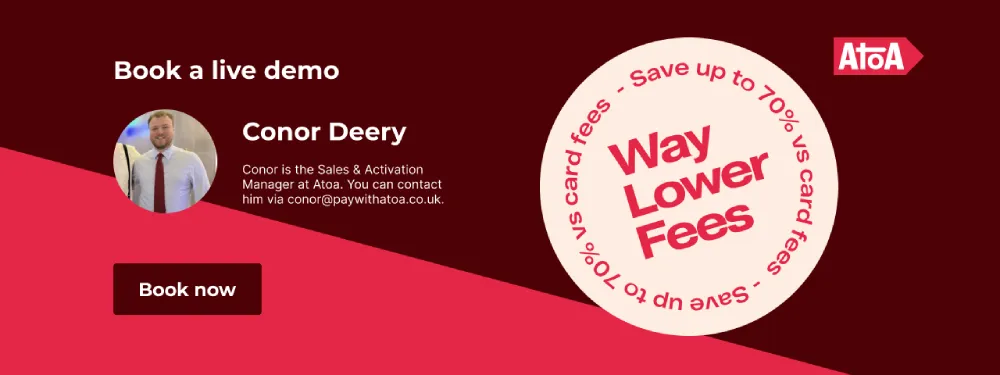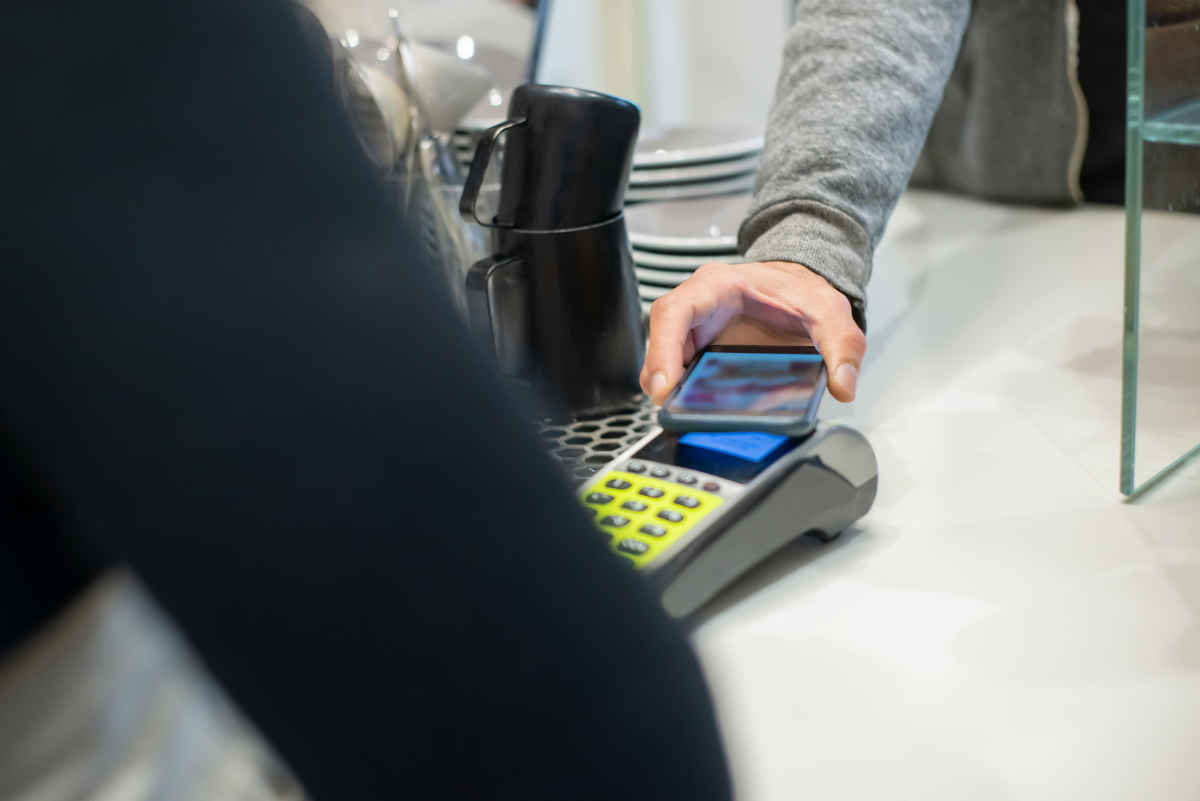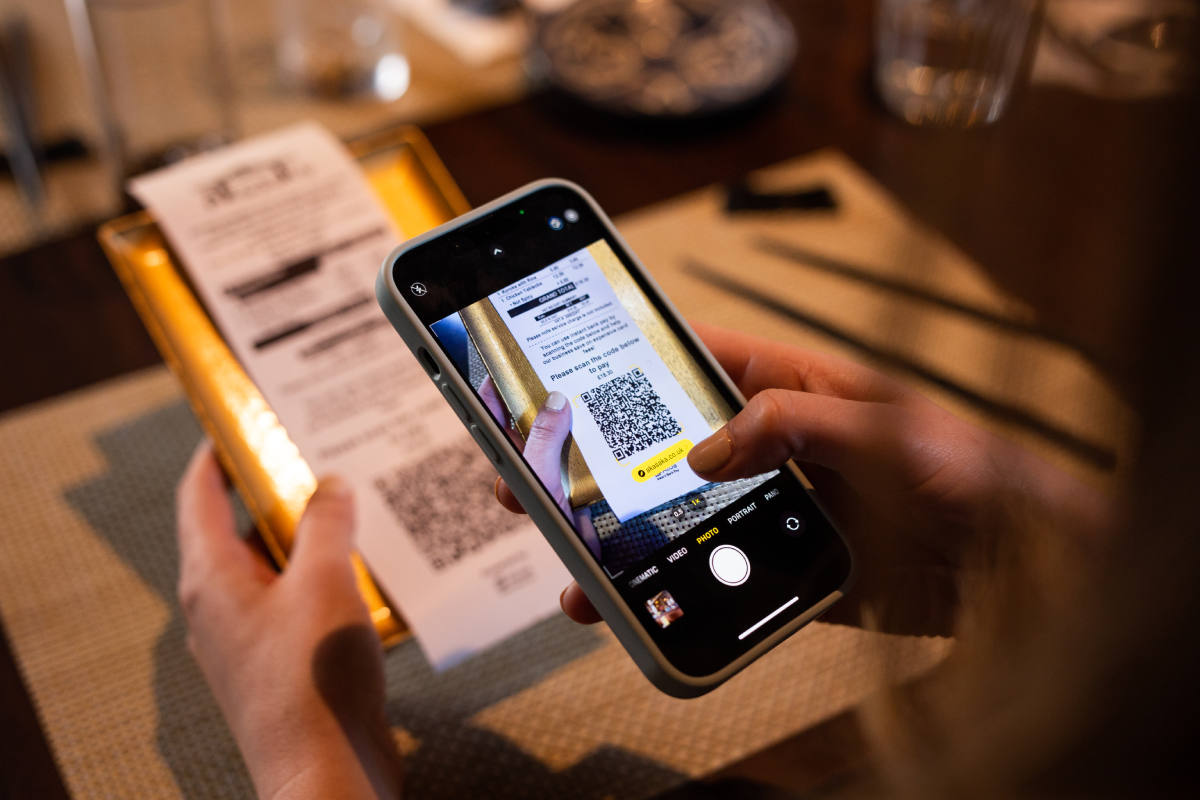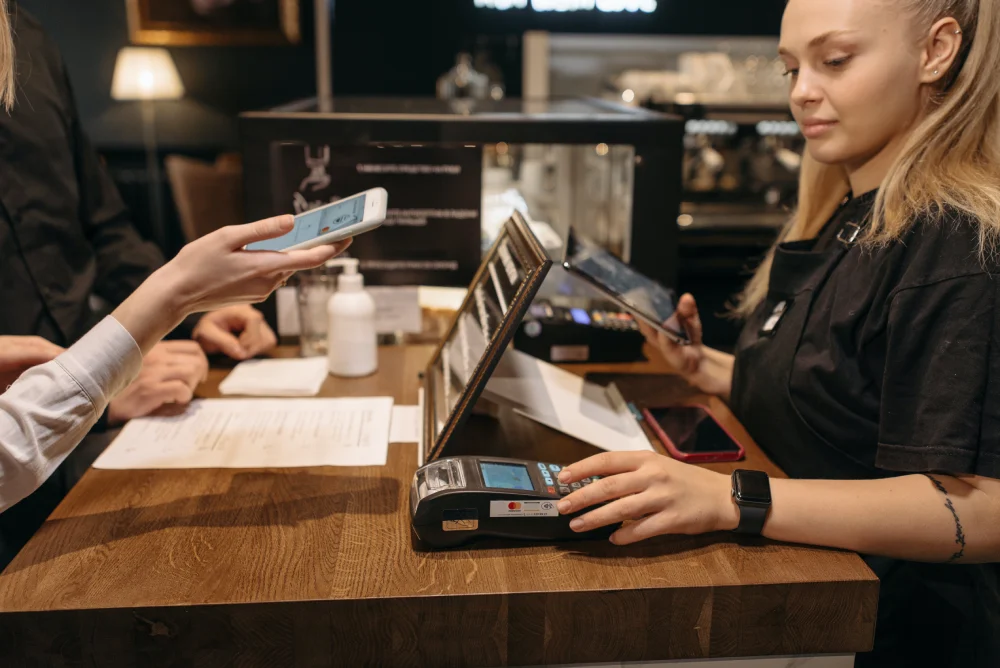Ready to get started?
Easily integrate next-generation payments and financial data into any app. Build powerful products your customers love.
In just a few years, the payment landscape changed dramatically in the UK and beyond. Why? The COVID-19 pandemic. Nobody predicted how the virus would unfold or the impact it would have on our daily lives, especially how we interacted with businesses and the future of payments. The result was a decline in cash use. Touch-free and contactless payment solutions were at the top of the list, with anyone who didn’t have cashless options scrambling to add digital payments to their business.
UK Parliament figures show that at the beginning of June, there were just over 49,000 cash machines in the UK, 78% of which were free to use. The total number of cash machines in the UK peaked in 2015 and has fallen each year since then. What does that hold for the future of payments in the UK? Let’s find out…
In this article, I will explore the following topics:
- How digital payments in the UK are slowly replacing cash use
- The rise of A2A, P2P and QR code payments
- The future of payments and how your business can keep up
The future of payments in the UK (2024 and beyond)
So you didn’t want to enter your PIN on terminals during lockdown. Fair game. The number of contactless payments made in the UK increased by 12% during 2020. Customers were aware of transmission through touching payment terminals, which fuelled a switch to contactless. It’s no surprise that these behaviours stuck, with contactless debit and credit card payment volumes totalling 17 billion last year.
But it’s not just contactless card payments that keep customers and businesses ticking in the UK. Alternative digital payments are taking more limelight, with a huge focus on mobile wallets, buy now pay later and QR code solutions. Furthermore, as open banking gathers momentum, we will see increased adoption of account-to-account (A2A) payments and peer-to-peer (P2P) payments.
You might be wondering why these payment methods are so popular and what makes business owners prefer them over more established ways to pay, like cards and cash. It’s simple. These methods, especially those involving open banking, are generally faster and cheaper than using card networks, can be more convenient to customers and also reduce time spent counting cash and processing it at banks.

Mobile payment trends are on the rise
Digital and mobile wallets are also payment methods that business owners can’t ignore in 2024. Almost half (49%) of global online transactions were made using them in 2022. Mobile wallets are becoming increasingly popular, allowing customers to pay quickly and securely with their smartphones. Whilst mobile wallets can seem complex, they can be broken down into three simple types:
Think of closed wallets like gift cards for specific stores or apps. Customers can only use them within that company’s network, so they’re not ideal for general sales, but they can be a good match for any loyalty programs or special offers.
Semi-closed wallets are more flexible and let customers pay at various businesses that have signed up for the same wallet service, like Google Pay or Apple Pay. However, customers can’t withdraw their money as cash, so they’re not a complete replacement for traditional bank cards or cash.
Open wallets are digital bank accounts on your phone. Customers can use them for all sorts of transactions, including paying for goods and services or sending money to others. They’re the most versatile option, but they might come with fees, so check the terms carefully.
Here’s what mobile payments can do for you
Mobile wallets store users’ payment information electronically instead of using physical cards or cash, which can benefit both you and your customers.
Faster transactions: No more waiting for cards to process or fumbling for change. Mobile wallets offer instant payments, keeping queues moving and customers happy.
Reduced costs: Your business will no longer need to rely on card readers or cash handling, resulting in easier operations and handy savings on processing fees.
Improved security: Most mobile wallets use advanced encryption and fraud protection like biometric authentication, offering peace of mind for both you and your customers.
Increased reach: Attract tech-savvy customers who prefer contactless payments and stay ahead of the curve in technology adoption.
How QR codes can future-proof your business
One area we’re very passionate about is the use of QR codes and links to make A2A payments. It’s why Atoa’s fast, fair and secure payments exist, giving business owners the power to make instant transfers from the customer’s bank app with their approval. All it takes is a quick scan from the customer to start a transaction in their browser, transferring funds instantly. QR code payments are incredibly flexible, too, working wonders across hospitality, hair and beauty, retail and much more.
But why QR codes?
It’s simple and secure: Get set up in minutes, no tech know-how required. Plus, Atoa keeps your payments safe with bank-level security measures.
You’ll stand out from the crowd: QR codes offer a tech-forward, open banking payment solution that improves customer experience.
It works like a dream: You don’t need to ditch your existing setup. Atoa QR codes can be added to most leading UK POS systems.
Take remote payments: Save customers a trip to the cash machine because they’re few and far between these days. Also, accept funds over WhatsApp, SMS or social media with Atoa’s secure links.
Enjoy other features: Add your staff for payments, accept tips, and manage multiple businesses or locations.
How to accept QR code payments in the UK
Are you tired of running to the bank with bags of cash or, worse still, shelling out unfair card fees? Atoa’s lightning-fast QR code payments are here to save the day, letting your customers scan, pay, and go – instantly.
- Choose Atoa. Our UK-based customer care team is ready to answer your questions and guide you through the process.
- Create your account. It’s quick and free! Once registered, you can accept customer payments within seconds.
- Get the word out. Display your codes in-store, online, and anywhere your customers see them.
- Relax and enjoy! Watch your sales increase with the convenience of QR payments.
Try our QR code payments with a free 7-day trial. We won’t charge you a penny during this time, plus you get:
- Transparent pricing: No hidden fees, ever.
- Flexible terms: No contracts; start and stop as needed.
- Simple setup: Minutes to start, no hardware required.
- Payments anywhere: Online, in-store, on the go – Atoa has you covered.
Nothing is stopping your business from joining the future of payments today. Atoa’s QR codes are an affordable, secure, and easy way to boost your business and keep your customers happy.
FAQs about the future of payments
What are the biggest trends in the future of payments in the UK?
Cash use is declining, with cards, apps, and online payments taking over. Instant transfers are becoming the norm, meaning quicker access to funds for both you and your customers.
How will technology like AI and blockchain impact the future of payments?
AI may provide smarter fraud detection, personalised payment recommendations, and improved customer service through chatbots. Blockchain has the potential for secure and transparent record-keeping, potentially reducing fees and transaction times.
Will customers stop paying with cash?
Not necessarily. While its use will likely decrease, cash might still have a niche for small transactions or those who prefer it. However, offering cashless options is becoming increasingly important and shouldn’t be ignored.
How will businesses need to adapt to new payment methods?
Business owners will need to embrace contactless payments, mobile wallets, and online payment options. Security is key, so keep up with regulations and invest in secure systems and data protection to keep your customers’ information safe.
How will future payment methods ensure security and data privacy?
Who knows what the future has in store for us, but we expect biometric authentication like fingerprint or facial recognition might replace PINs for added security and convenience.
Book a demo with Conor to get started with Atoa!
